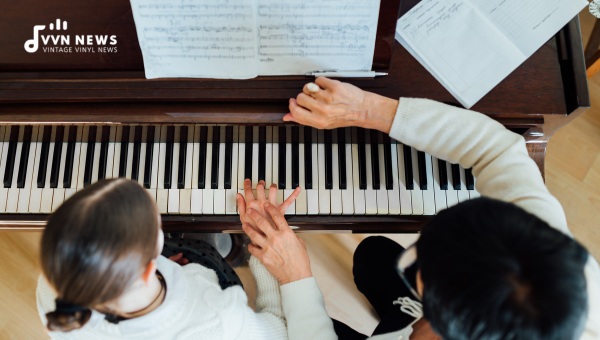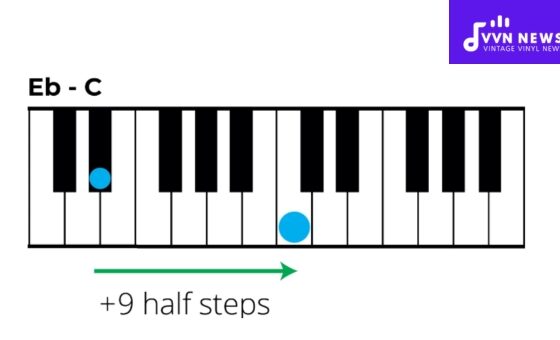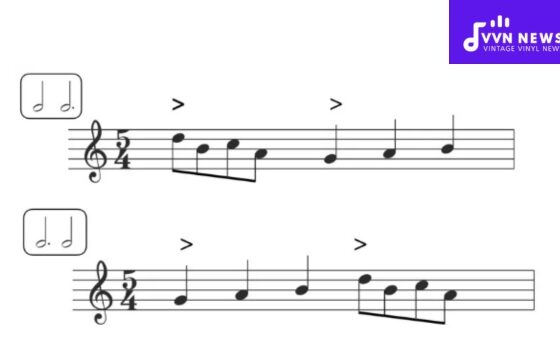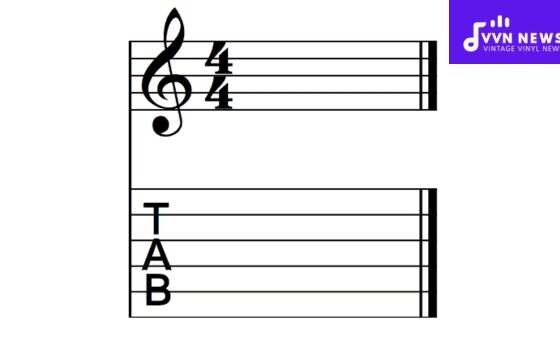As a music teacher, effective communication with parents is crucial in creating a successful learning environment for their children.
Building a strong partnership with parents can empower both parties to support the growth and development of young musicians.
In this blog post, I will share my insights and experiences on how to communicate with parents as a music teacher.
When it comes to fostering open and effective communication with parents, it’s essential to approach the relationship with respect, clarity, and empathy.
As a music teacher, I understand that each parent brings their own set of expectations, concerns, and preferences when it comes to their child’s musical journey.
By establishing clear channels of communication and actively listening to their needs, we can work together towards the common goal of nurturing a passion for music in their child’s life.
So let’s dive into some practical strategies for effectively communicating with parents as a music teacher.
How To Communicate With Parents As A Music Teacher

Effective communication with parents is essential for music teachers to create a positive and supportive learning environment for their students.
It helps build trust, understanding, and collaboration between teachers and parents.
We will explore the best strategies to communicate effectively with parents as a music teacher.
Regular Updates
Regular updates are an essential aspect of effective communication with parents as a music teacher.
Providing regular updates on their child’s progress, upcoming events, and any changes in the curriculum is crucial in maintaining a sense of transparency and keeping parents informed.
Here are a few tips for implementing regular updates:
- Weekly or monthly newsletters: Creating and sending newsletters to parents can be an effective way to keep them updated on what their child has been learning, upcoming performances or recitals, and any other relevant information.
- Digital platforms: Utilize digital platforms such as email, online learning portals, or even social media groups to share frequent updates with parents. This allows for easy access to information and encourages engagement from both the students and their parents.
- Progress reports: Provide periodic progress reports or assessments that outline the child’s musical development. This helps create a clear picture of their strengths and areas for improvement.
Open Communication Channels
Establishing open communication channels is vital in building trust and rapport with parents as a music teacher.
When parents feel comfortable reaching out to you with questions, concerns, or suggestions, it strengthens the overall partnership between all parties involved. Here are some ways to promote open communication:
- Regular office hours: Set specific office hours during which parents can reach out to discuss any concerns or questions they may have.
- Multiple modes of contact: Offer various methods of communication such as email, phone calls, or even virtual meetings to accommodate different preferences.
- Prompt responses: Make it a priority to respond promptly to parent inquiries or concerns so they feel heard and valued.
- Two-way feedback: Encourage parents to provide feedback on the teaching approach or any issues that arise during lessons. This allows for continuous improvement and strengthens the parent-teacher relationship.
Active Listening
Active listening is an essential skill when communicating with parents as a music teacher.
By fully engaging in the conversation and showing genuine interest, you can better understand their perspective and address their needs effectively. Here are some strategies for active listening:
- Maintain eye contact: When speaking with parents, maintain eye contact to show your attentiveness and respect.
- Paraphrase and summarize: Repeat or summarize important points raised by parents to ensure mutual understanding.
- Empathize: Show empathy towards any concerns or challenges voiced by parents. This helps build trust and a positive connection between you and the parents.
- Ask clarifying questions: Seek clarification when necessary to fully comprehend what is being communicated.
Also Read: How To Teach Breath Control? [Easy Exercises For Singers]
Transparency
Transparency is key when communicating with parents as a music teacher. It involves honest and open sharing of information regarding their child’s progress, performance expectations, or any potential obstacles that may arise during their musical journey.
Here are some ways to promote transparency:
- Clearly outline objectives: Clearly communicate the learning objectives and expectations for each student, as well as how you plan to track progress over time.
- Share lesson plans: Provide parents with an overview of your lesson plans so they can understand what their child will be learning throughout the year.
- Address concerns proactively: Be transparent about any challenges or difficulties that may arise during lessons or practice sessions, discussing them openly with parents so they can be part of finding solutions together.
- Regular feedback: Provide ongoing feedback about the child’s progress, highlighting areas of improvement and celebrating achievements to foster transparency in your teaching approach.
Collaborative Goals
Working collaboratively with parents towards shared goals is crucial in creating a supportive musical environment for students.
Here are some ways to establish collaborative goals:
- Parent-teacher meetings: Regularly schedule meetings with parents to discuss goals for their child’s musical development and set realistic expectations together.
- Involvement in goal-setting: Involve parents in the goal-setting process by considering their input and aligning it with your teaching approach.
- Progress evaluation: Set mini milestones or checkpoints to evaluate progress and discuss it with parents to keep everyone accountable and focused on the shared goals.
- Celebrate achievements: Celebrate milestones or achievements together as a way to acknowledge the collective efforts of all involved parties.
Positive Reinforcement
Positive reinforcement is a powerful tool when communicating with parents as a music teacher.
It involves recognizing and praising the efforts, progress, and achievements of students, which in turn fosters a positive learning environment.
By regularly providing positive feedback to parents about their child’s musical journey, you can build trust, boost motivation, and nurture a sense of accomplishment.
Here are some strategies for incorporating positive reinforcement into your communication with parents:
- Celebrate milestones: Acknowledge and celebrate significant achievements or milestones reached by the student. This could be mastering a difficult piece, performing in front of an audience, or receiving recognition from external competitions.
- Regular progress updates: Keep parents informed about their child’s progress during lessons. Highlight areas where the student has shown improvement or excelled. This can be done through written reports, verbal updates during parent-teacher meetings, or email correspondence.
- Recognition of effort: Recognize the effort put in by students during practice sessions and highlight the importance of consistent practice. Share specific instances where the student has demonstrated dedication or perseverance in their musical development.
- Public appreciation: With parental consent, publicly recognize student achievements on social media platforms or during recitals and concerts. This not only builds confidence in students but also creates a sense of pride for parents.
By implementing these strategies consistently, you can ensure that parents feel engaged and involved in their child’s musical journey while providing essential encouragement to both students and families.
Also Read: Musical Key Characteristics & Emotions [Understand Their Impact]
Cultural Sensitivity
Cultural sensitivity is crucial when communicating with parents as a music teacher.
To create an inclusive learning environment that values diversity and respects different cultural backgrounds, it is essential to be aware of potential cultural influences that may impact a student’s musical experience.
Consider the following tips for cultivating cultural sensitivity:
- Research and understanding: Familiarize yourself with different cultural practices related to music education to better understand how they may inform your teaching approach. This includes learning about musical traditions, instruments, and music genres from various cultures.
- Respect for cultural norms: Be mindful of the cultural norms and values that may influence a student’s engagement with music. For example, in some cultures, it may be customary for parents to play an active role in a child’s music lessons or expect specific musical genres to be taught.
- Inclusive teaching materials: Incorporate diverse instructional materials that reflect different musical traditions and genres into your curriculum. This can help students from various cultural backgrounds find representation and feel included in the learning process.
- Collaborative dialogue: Foster open communication with parents by inviting them to share their cultural perspectives on music education. Create opportunities for families to discuss their heritage, musical traditions, and aspirations for their child’s musical journey.
By embracing cultural sensitivity, you can create an environment that celebrates diversity and promotes cross-cultural understanding, enriching the educational experience for both students and parents alike.
Flexible Meeting Times
As a music teacher, accommodating flexible meeting times demonstrates your commitment to open communication and shows respect for the busy schedules of parents.
Providing options for parent-teacher meetings outside of traditional school hours allows for improved access and engagement.
Consider these strategies to offer flexible meeting times:
- Evening meetings: Schedule parent-teacher meetings in the evenings to ensure working parents have an opportunity to participate without conflicting with their work commitments.
- Weekend availability: Offer limited weekend slots for meetings with parents who may find it challenging to attend during weekdays due to their work schedules or other commitments.
- Virtual meetings: Provide the option for virtual meetings via video conferencing platforms as an alternative to face-to-face meetings. This can accommodate parents who are unable to attend due to distance or time constraints physically.
- Advance scheduling: Plan ahead by providing a schedule of available meeting times well in advance, allowing parents to plan accordingly and secure a time slot that suits them best.
By being flexible with meeting times, you can ensure that parents feel valued, heard, and included in their child’s musical education journey.
Also Read: What Does An Ethnomusicologist Do? 2025 [Careers & Salary]
Professional Boundaries
Maintaining professional boundaries in your communication with parents helps establish a respectful and productive relationship.
While it is important to build trust and rapport, it is equally crucial to maintain a professional distance to ensure objectivity and fairness.
Consider these tips to uphold professional boundaries:
- Clear communication policies: Establish clear guidelines regarding preferred modes of communication, response times, and appropriate methods for addressing concerns or questions. This sets expectations from the beginning and avoids any confusion or misunderstandings.
- Maintain confidentiality: Respect the privacy of students and families by keeping all communication confidential unless consent is provided or there are legal obligations to disclose information.
- Stick to the subject matter: Keep conversations focused on matters directly related to the student’s musical progress, practice routines, or upcoming events. Avoid discussing personal matters unrelated to music education.
- Maintain professionalism online: Be mindful of your online presence and behavior on social media platforms. Refrain from making negative comments about students or parents publicly that could harm your professional reputation.
By setting clear boundaries, you can establish a healthy teacher-parent relationship based on professionalism, mutual respect, and effective communication.
Resource Sharing
Sharing educational resources with parents can enhance their understanding of their child’s musical education journey while empowering them to provide additional support outside of regular lessons.
Consider these strategies for resource sharing:
- Recommendations: Provide parents with recommendations for books, websites, online tutorials, or music apps that they can explore with their child at home. This gives them access to additional learning materials that align with the curriculum being covered in lessons.
- Practice guides: Share practice strategies or schedules that parents can follow to support consistent practice at home. Clear guidelines ensure that parents can reinforce what their child is learning during lessons effectively.
- Parent workshops: Organize workshops or webinars to educate parents on topics such as music theory, instrument care, or effective practice techniques. This allows parents to actively participate in their child’s musical education and deepen their understanding of the learning process.
- Collaborative platforms: Utilize online collaboration tools or platforms where teachers and parents can share materials, notes, and recordings. This encourages transparency and enables ongoing communication about a student’s progress.
By actively sharing resources with parents, you foster a supportive partnership in which both parties work together towards the growth and development of the child as a musician.
Effective communication with parents as a music teacher involves positive reinforcement, cultural sensitivity, flexible meeting times, maintaining professional boundaries, and resource sharing.
By implementing these strategies, you can build strong relationships with parents that enhance the educational journey of their children and create a collaborative learning environment.
Also Read: How Much Should You Work As A Music Teacher? [Find Balance]
FAQs about Communicating with Parents as a Music Teacher
How often should I provide updates to parents about their child’s progress?
Regular updates are important to keep parents informed and engaged. Whether through weekly emails, monthly newsletters, or progress reports, consistent communication allows parents to track their child’s musical journey.
How can I ensure open communication channels with parents?
Creating multiple channels for communication, such as email, phone calls, and parent-teacher conferences, offers various options for parents to reach out and stay in touch. Please encourage them to share any concerns or questions they may have.
How can active listening improve my communication with parents?
By actively listening to parents’ concerns and feedback, you demonstrate empathy and understanding of their perspective. This helps build trust and forms a solid foundation for productive conversations.
Should I be transparent about my teaching strategies with parents?
Transparency is key in fostering trust between teachers and parents. Sharing your teaching methods, goals, and expectations helps parents understand your approach and actively participate in their child’s musical education.
How can I encourage collaboration in goal-setting for students’ musical development?
Inviting input from parents in setting goals for their children allows them to feel involved and invested in the learning process. Collaboratively establishing goals ensures alignment between home practice and lessons.
Conclusion
Effective communication with parents is a vital aspect of being a music teacher.
By establishing regular updates, open communication channels, and actively listening to their concerns, we can build a strong partnership.
Transparency, collaborative goals, and positive reinforcement also contribute to creating a supportive learning environment.
Moreover, being culturally sensitive, offering flexible meeting times, and maintaining professional boundaries further enhance the communication process.
By incorporating these strategies into our interactions with parents, we can foster a productive dialogue that ultimately benefits the musical growth of their children.








